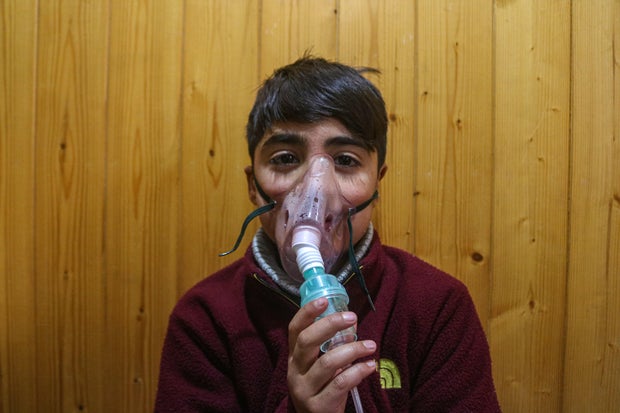New Delhi – Indian officials have confirmed the vast country’s first cases of the human pneumonia virus, as it is often called HumpfSeven people were said to have been infected with the virus as of Tuesday, according to the Indian Council of Medical Research.
Two cases of HMPV were reported in the central Indian city of Nagpur on Tuesday, while two cases were reported in the cities of Bengaluru, and one each in Ahmedabad, Chennai and Salem on Monday. The cases include a three-month-old girl who tested positive for HMPV on Monday. Another case involved an eight-month-old boy who tested positive for HMPV and respiratory syncytial virus, or RSV.
HMPV can cause upper and lower respiratory illnesses in people of all ages. Young children, older adults, and people with weakened immune systems are most at risk of serious illness from the virus. According to the CDC, symptoms commonly associated with HMPV include cough, fever, nasal congestion, and shortness of breath.
Firdous Nazir/NoorPhoto/Getty
HMPV infection is It is said to be on the rise in ChinaIt has sparked interest around the world, but Dr. Carla Garcia Carreño, director of infection prevention and control at Children’s Medical Center Plano in Texas, told CBS News this week that there is no concern about a potential new pandemic.
“This has been circulating for a while, so people have some immunity,” she said, adding that the virus is fairly stable, unlike previously. Covid-19 A virus that mutates often, making it difficult to fight.
India’s federal government asked states on Monday to step up surveillance for respiratory diseases and spread awareness on how to prevent HMPV transmission. Preventive measures include covering the mouth and nose while sneezing or coughing, washing hands frequently, and wearing masks in crowded places.
“Health experts have clarified that HMPV is not a new virus. It was first identified in 2001 and has been circulating throughout the world for many years,” Indian Health Minister JP Nadda said on Monday. “The country’s health systems and surveillance networks are vigilant and there is no reason for concern.”
Nadda said the infected people in India had no recent travel history and that the government was “closely monitoring the situation in China and neighboring countries.”
The health ministry also said that HMPV infections are “no cause for concern”, as there has been no unusual increase in respiratory illnesses detected in the country, and noted that India is well prepared for any surge should it occur.
The ministry said in a statement, “Infection with the virus is usually a mild condition and ends on its own, and most cases recover on their own.” statement Tuesday.
Health agencies, such as the United Nations World Health Organization and the US Centers for Disease Control and Prevention, have not expressed any concern about HMPV infections in Asia.
She contributed to this report.
https://assets1.cbsnewsstatic.com/hub/i/r/2025/01/07/d3fa7d7e-6cf0-42f4-844f-c462dcff31ac/thumbnail/1200×630/4bdebd69a1fd6abf2f980f82c8598636/india-hmpv-2192262335.jpg?v=6ffea931a1e284729a23a55e2e39c4e9
Source link
